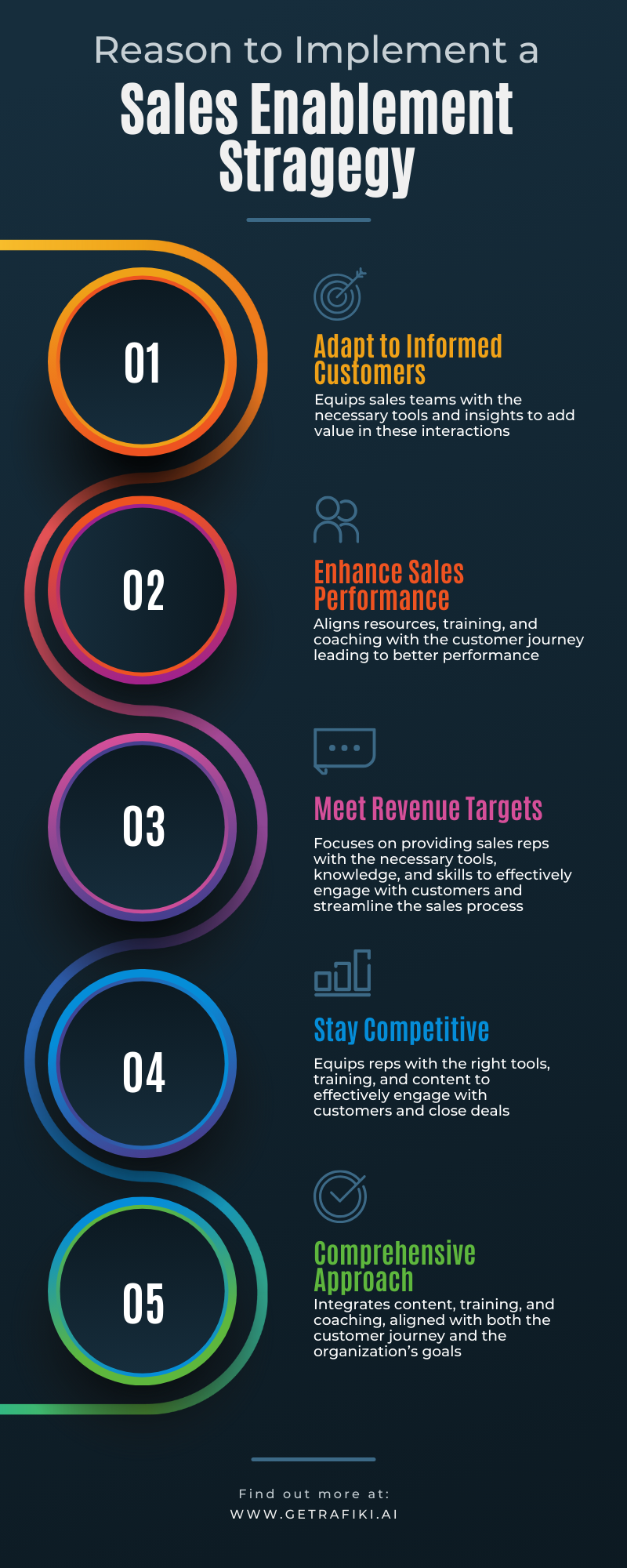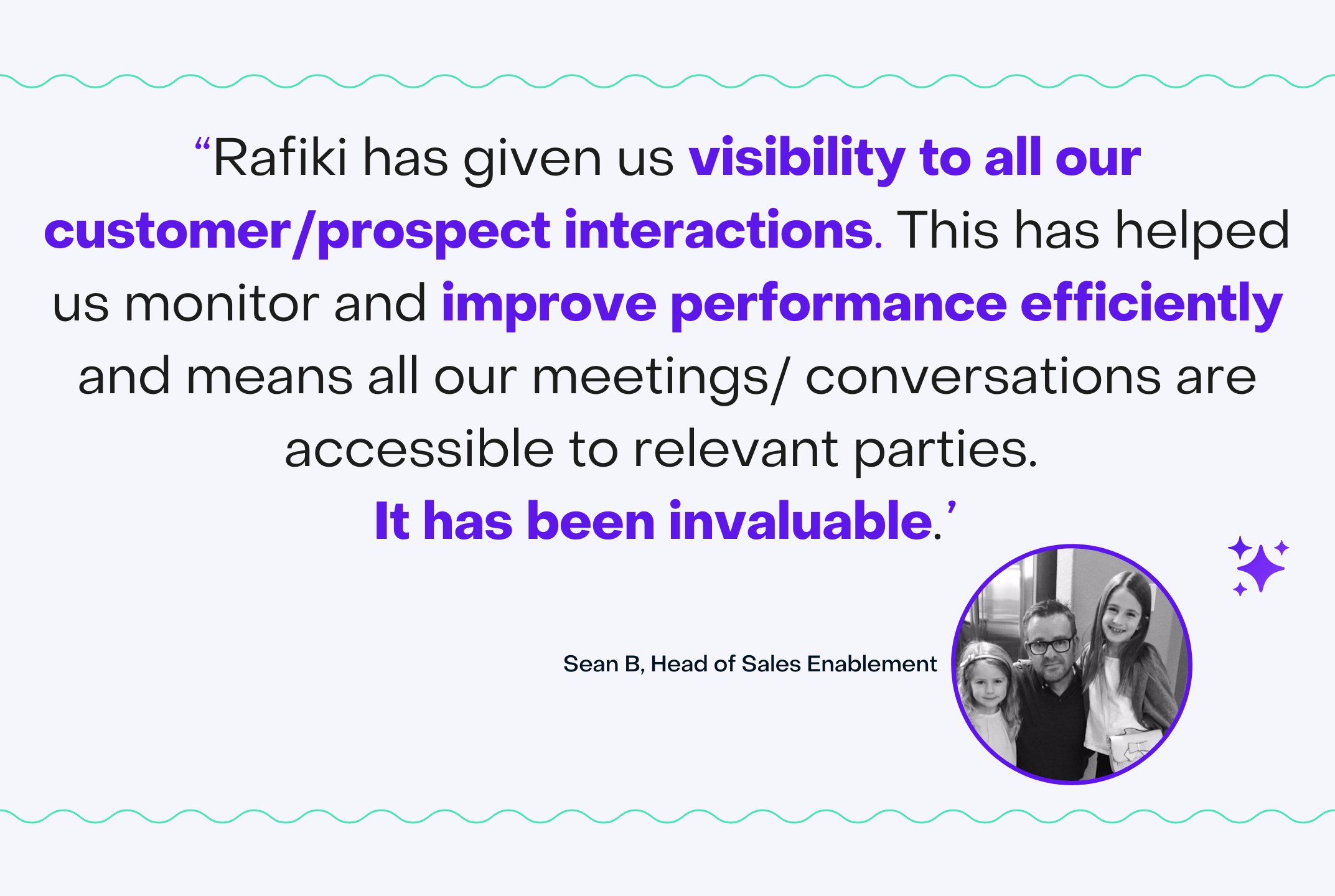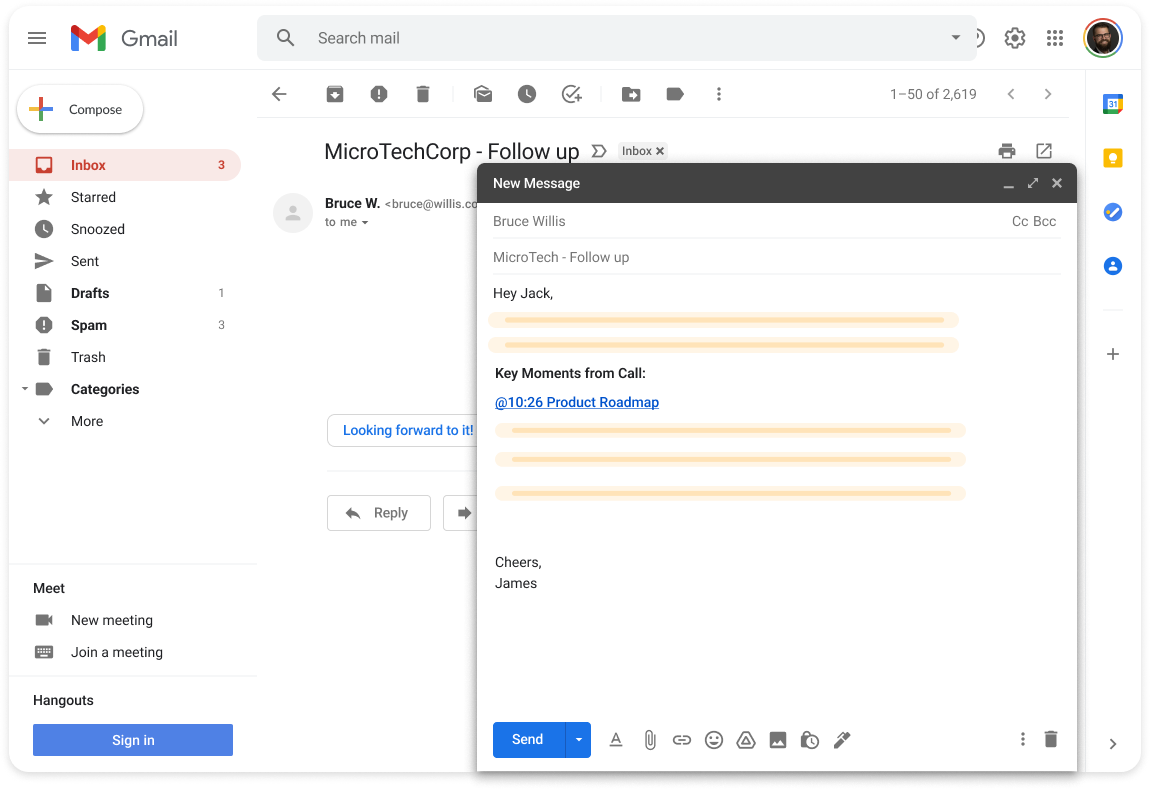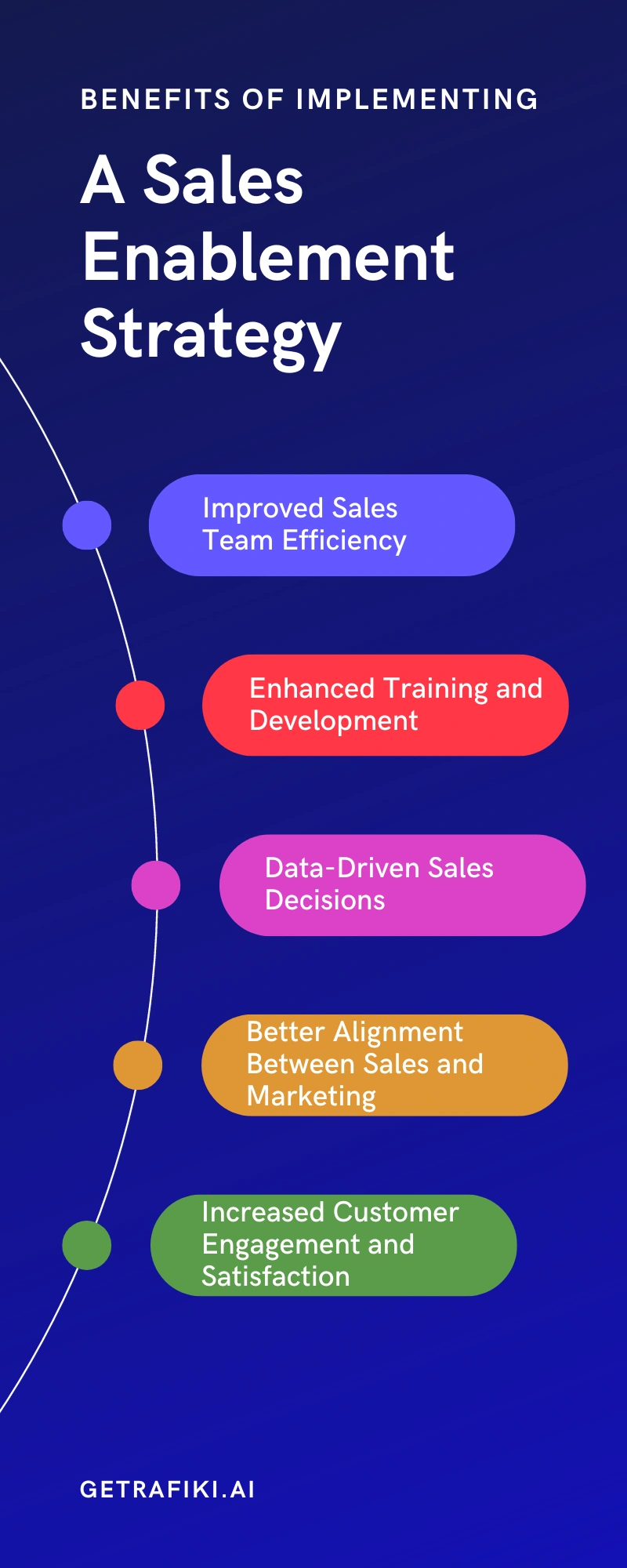Unlock Growth: AI-Powered Sales Enablement
Imagine a world where every sales team operates at peak efficiency, harnessing the full power of technology and strategy to not only meet but outpace their targets. This is the world of modern sales enablement – a vital, pulsating aspect of today’s business ecosystem. It’s where strategy and technology converge to create a powerhouse of sales excellence, driving teams towards unprecedented success.
Embark on a journey with us where we unveil a new frontier in sales strategy. Here, innovation isn’t just an add-on; it’s the driving force reshaping how sales is done. We’re talking about a seismic shift from the traditional, bringing to life a sales enablement approach that’s rooted in cutting-edge technology and transformative methodologies.
Get ready to explore how this revolution is not just changing the game but also setting new rules for success in the dynamic world of sales.
Importance of a Sales Enablement Strategy

Sales enablement is now a crucial part of successful sales. It helps sales teams understand today’s smart B2B customers who usually research before they buy. With sales enablement, teams get the right tools and info to really help these customers, turning salespeople into trusted advisors.
It’s not just about training or tech; it’s a whole strategy that brings together people and tools to give the right content, training, and coaching.
Key aspects of sales enablement strategies focus on providing sales reps with the necessary tools, knowledge, and skills to effectively engage with customers and streamline the sales process.
By offering contextual guidance and relevant resources, sales enablement strategies aim to speed up the sales cycle and improve sales productivity and performance.
More and more sales teams are using sales enablement. A Korn Ferry study shows a big increase in teams with a special focus on this.
Sales enablement is a multifaceted approach that combines the right tools, training, and strategy to empower sales teams, leading to improved sales outcomes and overall business performance.
To make sales enablement work, it involves mixing customer info with CRM systems, fitting it into the daily work of sales teams, offering short, focused training, and having a lot of helpful sales info ready to use. This way, sales teams can really tackle today’s sales challenges and opportunities.
Traditional Sales Enablement: A Foundation with Cracks
Back in the day, sales enablement looked different. Think classroom training, product manuals, and static content galore.
While effective then, these methods faced challenges in the digital age:
- Content: Static materials couldn’t engage modern buyers, who craved dynamic and personalized experiences.
- Information: Siloed resources and disjointed workflows slowed down reps and hindered collaboration.
- Coaching: Limited scalability meant less personalized guidance and feedback, impacting performance.
- Technology: Lack of advanced tools restricted data analysis and real-time insights, obscuring the sales journey.
- Metrics: Focus on lagging indicators like quotas ignored the nuances of modern sales cycles.
These limitations paved the way for the evolution of sales enablement, where data-driven insights, dynamic content, and personalized coaching took center stage.
Transforming Sales Enablement with AI and Beyond
Traditional methods laid the groundwork, but the digital age demanded a tech-powered transformation.
Enter the revolutionary world of AI, machine learning, and cutting-edge tools, redefining sales enablement from the ground up:
1. Content on Autopilot: Dynamic Engagement with AI and Automation:
Say goodbye to static brochures! AI-powered content creation platforms generate personalized sales materials that adapt to buyer profiles and preferences in real-time. Chatbots and virtual assistants provide 24/7 customer support, while automated workflows streamline content delivery and follow-ups.
2. Data-Driven Insights: Predicting the Future of Sales:
From lead scoring to churn prediction, AI analyzes vast amounts of data to uncover hidden patterns and generate actionable insights.
Sales leaders can anticipate customer needs, optimize resource allocation, and identify high-potential leads with laser precision.
3. Coaching 2.0: Personalized Guidance at Every Step:
Forget one-size-fits-all coaching. AI-powered coaching platforms analyze call recordings and customer interactions to identify individual rep strengths and weaknesses.
“The breakdown of conversation stats have been amazing for us to coach the team further and the summarizations of the call provide such a unique value.”
Jonathan I., Head of Sales
Personalized coaching plans and real-time feedback empower reps to close more deals and elevate their performance.
4. Seamless Collaboration: Breaking Down Silos with Advanced Platforms:
Gone are the days of information silos. Integrated sales and marketing platforms with centralized content libraries and real-time communication tools foster seamless collaboration between teams.
This ensures everyone is on the same page, leading to quicker decisions and happier customers.
5. Beyond Metrics: Understanding the Customer Journey:
Forget lagging indicators like quotas. GenAI analyzes customer interactions at every touchpoint, measuring engagement, sentiment, and purchase intent.
This comprehensive understanding of the customer journey allows sales teams to personalize their approach and maximize customer satisfaction.
The Impact of GenAI and Beyond:
The integration of GenAI and other advanced technologies into sales enablement has had a profound impact:
- Increased Sales: Data-driven insights and personalized outreach lead to higher conversion rates and boosted revenue.
- Improved Customer Experience: Real-time engagement and tailored interactions cultivate stronger customer relationships and higher retention rates.
- Empowered Sales Teams: Personalized coaching and access to powerful tools make reps more efficient, confident, and equipped to close deals.
- Agile and Data-Driven Decision Making: Real-time insights enable swift adjustments to sales strategies and resource allocation, maximizing market responsiveness.
The marriage of cutting-edge technology and sales enablement strategies has ushered in a golden age of sales performance.
By embracing AI, GenAI, and other innovations, sales teams can not only survive but thrive in the digital marketplace, surpassing traditional limitations and rewriting the playbook for sales success.
Rafiki: Your AI Copilot for Sales Enablement Supremacy
In the modern sales landscape, armed with traditional methods alone is akin to entering a sword fight with a spork. That’s where Rafiki, your AI-powered co-pilot, swoops in, transforming sales enablement into a high-octane race towards exceeding quotas and leaving competitors in the dust.

Rafiki is more than just a tool; it’s your secret weapon, wielding three superpowers:
1. Conversation Intelligence: Imagine every sales call being analyzed by a ninja army of AI, extracting golden nuggets of data and insights. Rafiki automatically transcribes calls, identifies key moments, and even scores your performance, pinpointing areas for improvement. No more sifting through notes! You get actionable feedback and coaching opportunities delivered on a silver platter.
2. Personalized Content Automation: Ditch the cookie-cutter presentations and say hello to dynamic content that dances to the tune of each prospect. Rafiki uses AI to craft personalized sales materials, tailoring messaging and recommendations based on individual needs and preferences. Imagine prospects feeling like the main character in their own sales story – that’s Rafiki’s magic.
3. Smart Follow-Up Made Easy: Forget scrambling for notes after a call. Rafiki automatically captures key moments and generates personalized follow-up emails within minutes. No more memory lapses or delayed responses. Strike while the iron is hot and keep the conversation flowing seamlessly.

But Rafiki’s impact goes beyond mere features:
- Boost Sales & Close More Deals: Data-driven insights and personalized interactions lead to higher conversion rates and overflowing pipelines.
- Empower Your Sales Team: Targeted feedback and coaching fuel confidence, motivate reps, and unleash their full potential.
- Optimize Your Sales Process: Identify gaps and bottlenecks, refine your strategy based on data, and watch your sales engine purr like a finely tuned machine.
- Build Stronger Customer Relationships: Personalization and timely follow-up nurture trust and loyalty, turning prospects into raving fans.
Rafiki isn’t just a tool; it’s a sales enablement revolution- it’s like having a seasoned sales coach, a content whisperer, and a productivity ninja all rolled into one.
Rafiki is a a seismic shift in the landscape, where sales enablement transcends static content and cookie-cutter approaches to become a symphony of data-driven insights, personalized engagement, and lightning-fast agility.
So, ditch the spork and grab your AI-powered lightsaber. With Rafiki by your side, you’ll be the undisputed champion of the sales arena, leaving your competitors wondering how you do it.
Our Final Words
The necessity of a sales enablement strategy in the current business climate cannot be overstated. It stands as a vital bridge between the evolving market demands and the capabilities of sales teams.
The journey of sales enablement, from its traditional roots to the integration of cutting-edge technologies, reflects a landscape that is constantly adapting and innovating. This evolution highlights the importance of staying ahead of market trends and technological advancements.
Get higher win rates
Rafiki showcases how sales enablement can be effectively implemented in the digital era. With its AI-driven analytics, personalized coaching, and scalable approach, Rafiki offers a robust solution for transforming sales processes and outcomes. It addresses the modern challenges faced by sales teams, providing them with the tools to not only meet but exceed their sales targets.
Ready to unleash the power of AI in your sales game?
Start your free trial today and take your sales enablement to the next level!
